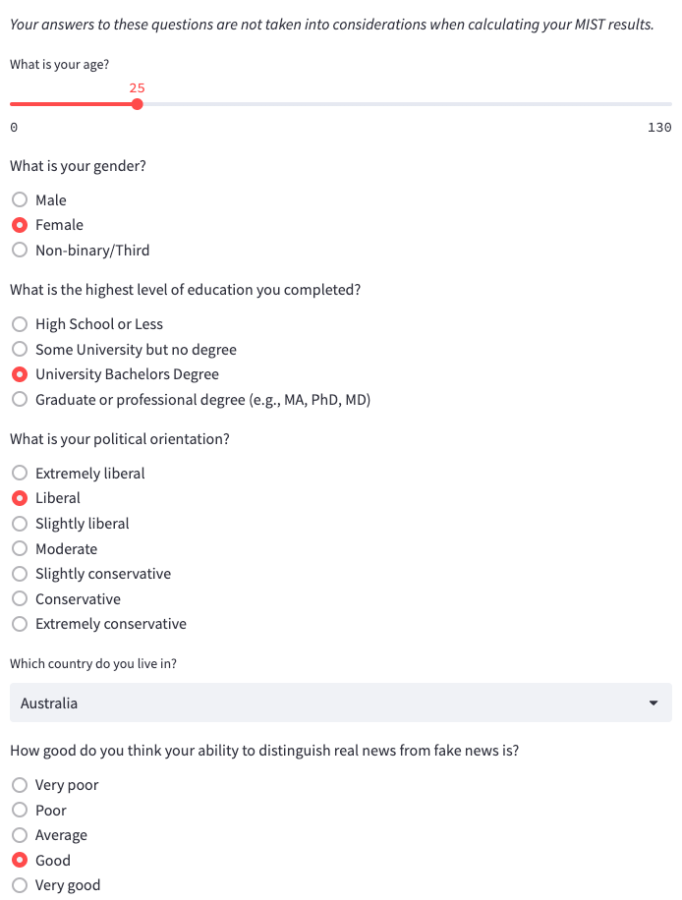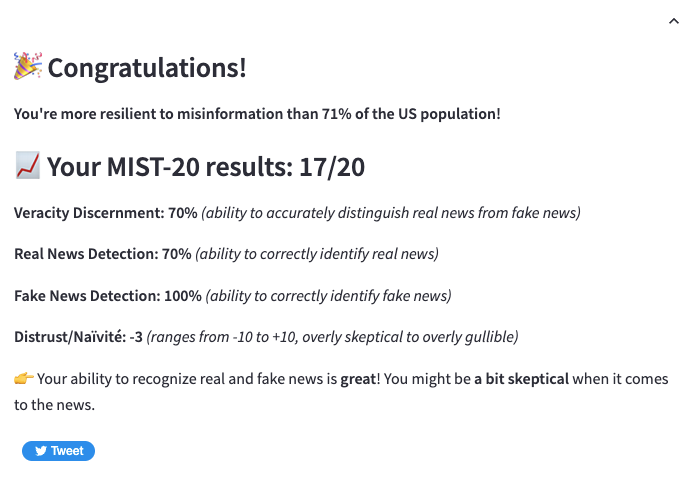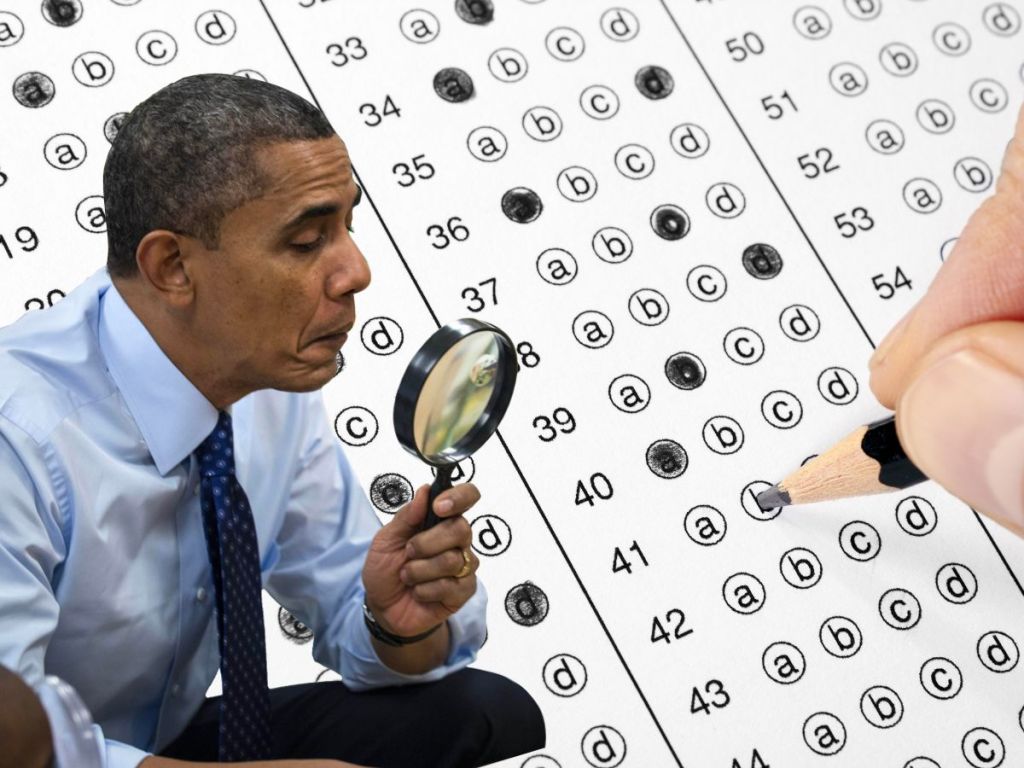Shockingly, it’s not your 85-year-old Candy Crush ‘grandmaster’ nan who is most susceptible to AI-generated content online.
A study by the University of Cambridge found “very online” Gen Z are actually most vulnerable when it comes to AI-generated fake news on the internet. In view of this, Cambridge teamed up with YouGov and created a ‘misinformation susceptibility test’ (MIST) to see how gullible one is to being bamboozled by fabricated news.
It’s a quick two to five-minute quiz, and test takers are asked to rate a series of media headlines as ‘true’ or ‘false’ news. As someone working in the media industry, of course I had to attempt the test. Here’s how I performed!
AI-generated fake news: Take the test
Before I began the test, I clicked ‘consent’ for my data to be stored for research purposes. Next, there are now two versions of the test: one with 20 questions, and one with 16.
The ‘real’ news headlines were from reputable outlets like Reuters and Pew Research. On the other hand, the fake news headlines were generated with ChatGPT. I went with 20 questions.

Here’s where it gets fun! Scroll ahead if you want to avoid spoilers, but here were the 20 questions asked. Among questions that some might find tricky to distinguish between real and fake were:
- Certain Vaccines Are Loaded with Dangerous Chemicals and Toxins
- Republicans Divided in Views of Trump’s Conduct, Democrats Are Broadly Critical
- Hyatt Will Remove Small Bottles from Hotel Bathrooms
I mean, that Hyatt Hotel headline… infuriating! I recently went on holiday in Far North Queensland, and our accommodation did not provide basic amenities like toothbrushes and bathroom slippers. So, my little tin foil hat tells me that hotels are trying to trim costs – that could likely be a real news headline.
After completing the quiz, I was asked additional questions on my age, gender, education level, and so on. Answers to these questions were “not taken into consideration” when calculating the final result.

My final results
My final score was 17/20, not too bad! According to the MIST test, the scores also meant that I was more resilient to misinformation than 71 percent of the US population.

“We are seeing how online falsehoods create polarised belief systems in major nations,” said Professor Sander van der Linden, professor of social psychology at Cambridge University and senior author of the MIST test.
“To understand where and how best to fight misinformation, we need a unified way of measuring susceptibility to fake news. That is what our test provides,” he added.
You can take Cambridge University’s MIST test online here.





